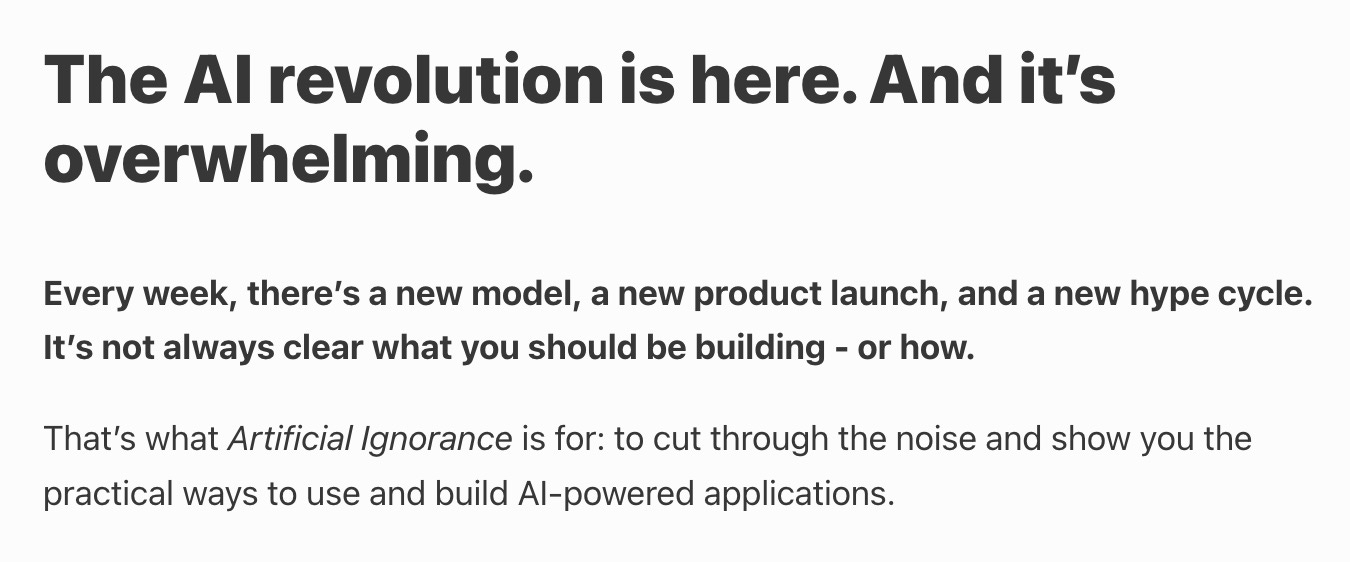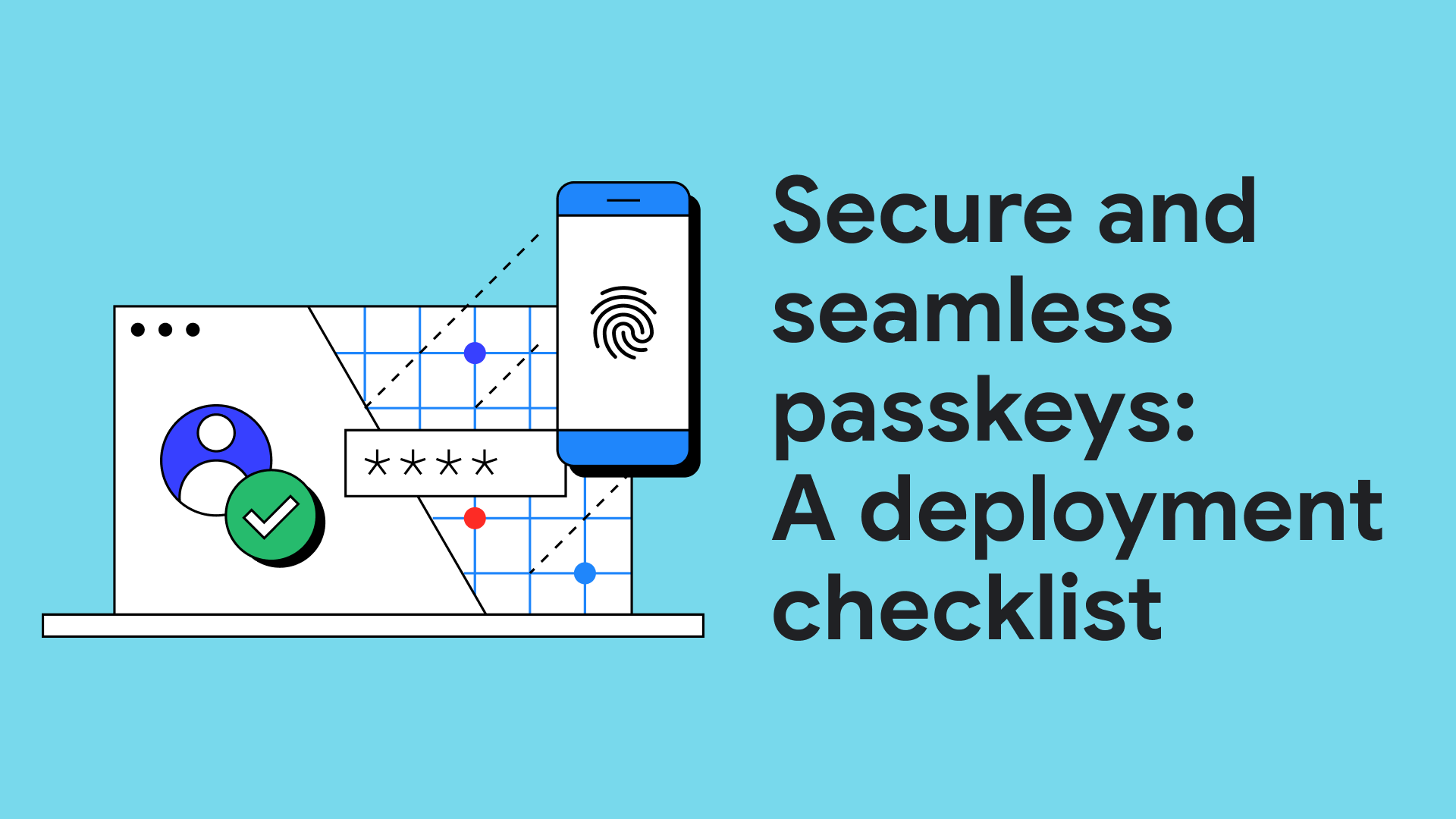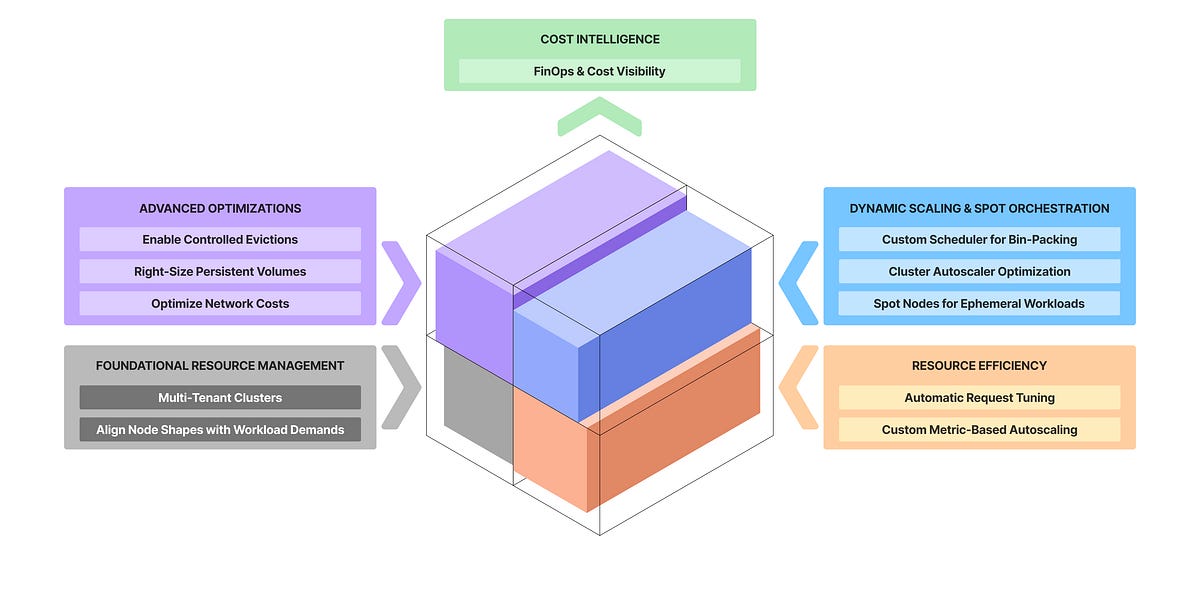Hey everyone - I'm in SF this week for the AI Engineer World's Fair! If you're here, shoot me a DM and come say hi. I've pre-recorded a talk for the conference's Online Track, and you can check it out here:
In the meantime, enjoy this completely earnest and not at all satirical post.
Look, I get it. Every day, dozens of headlines proclaim that AI is the next big thing, or is coming for our jobs, or might end human civilization as we know it. It's exhausting. And honestly, who has the time? We're all busy people.
That's why I've compiled this comprehensive guide for those who've decided that keeping up with AI is too much work. Follow these steps carefully, and you'll maintain a comfortable distance from any technological progress that might disrupt your peaceful existence.
The first rule of falling behind is simple: if you can't see it, it doesn't exist. I would liken AI to the pile of laundry in the corner of my bedroom, or the mail that Kaiser Permanente keeps sending me - ignore it long enough, and it might just go away on its own.
Start by assuming this whole AI thing is just a phase, a fad like Google Glass or pandemic sourdough bread. Why should this time be any different? Actively avoid any headlines with the letters "AI," mute anyone on social media who mentions ChatGPT more than once a week, and don't try anything with "AI" or "Chat" or "GPT" in the name.
If someone tries to show you what AI can do, or tell you why it's important, close your eyes and walk away quickly.
If that fails, and you're forced to acknowledge AI's existence, pivot immediately to dismissal.
Always lead with comparisons to NFTs and crypto, because behind every new AI influencer is an old crypto influencer. It's all overhyped at the end of the day.
Take the default position that anyone claiming AI is useful is either a paid shill or someone using it for the most pedestrian possible use cases, like writing birthday card messages or marketing content slop.
Never miss an opportunity to mention hallucination rates, conveniently ignoring that humans also make mistakes (but at least our mistakes are authentic!). And always, always call it a bubble. Point out how it's mathematically impossible for AI companies to justify their current valuations.
Initiative is overrated. Why experiment when you can wait for someone else to tell you exactly what to do?
Assume that eventually your job or your boss will provide comprehensive instructions on how you're supposed to use AI. Until that blessed day arrives, don't waste time or money on personal experimentation. That's what pioneers are for, and we all know what happened to the pioneers - they died of dysentery on the Oregon Trail.
Whatever you do, definitely don't test out new, unsanctioned use cases. The last thing you want is to discover a productivity hack that makes you indispensable or, worse, entrepreneurial. Mo leverage, mo problems.
Being frugal is a virtue, especially when it helps you avoid progress.
Never, ever pay for the latest AI models - they're not worth it. LLMs are like cars - a Toyota Corolla gets you to your destination just as well as a BMW. Pick one model or chatbot (preferably the first one you tried) and stick with it forever. Loyalty is admirable, even if it's to an outdated technology.
Make sure to benchmark your estimation of AI capabilities based exclusively on free models from 2024. Better yet, base it on the first time you tried the free version of ChatGPT, before you had ever heard of the term "prompt engineering."
And remember: everything listed above about AI is doubly true about AI agents. They're just chatbots with delusions of grandeur, so don't bother looking into them either.
If you absolutely must use AI, at least use it for the simplest possible things.
Only use it to short-circuit things you would have typed into Google anyway. Need the capital of France? Ask AI. Want to know how many teaspoons are in a tablespoon? AI's got you covered. This way, you can technically say you're "using AI" while extracting approximately 0.01% of its value.
Don't bother applying skills like providing good instructions, context, or clear expectations. Just bark orders at it like it's a particularly slow intern. When it gives you mediocre results, you'll have proof that AI isn't all it's cracked up to be.
Alternatively, once you come around to using AI, swing wildly in the opposite direction and assume it's an infallible oracle that requires no guidance whatsoever.
Never bother giving it context, constraints, or even basic goals. Just type prompts like "write the perfect marketing email" or "write closing arguments for my fraud trial" and expect miracles. When the AI asks for clarification, roll your eyes - shouldn't artificial intelligence be, you know, intelligent? The inevitable disappointing results will confirm your suspicion that this technology is overhyped, allowing you to return to comfortable skepticism.
Change is scary, and scary things should be avoided at all costs.
Double down on the most repetitive, mind-numbing tasks in your job. Data entry, manual reporting, copy-pasting between spreadsheets - these are the skills that built civilization, and by God, they'll sustain it too. More importantly, assume you'll be doing them manually until retirement, which will happen at the "normal" time (by conventional wisdom standards).
Never attempt to automate the boring parts of your work or get more leverage from your time. That would free you up to do more creative, strategic thinking, and who wants that responsibility? Don't bother learning new skill sets or becoming more of a generalist. After all, the more narrow your expertise, the harder you are to replace - like travel agents and switchboard operators.
Knowledge is power, and power should be hoarded like toilet paper during a hurricane.
If you accidentally stumble across a valuable AI insight at work, keep it to yourself. Your colleagues don't need to know about that prompt that saves you three hours a week - let them figure it out themselves. Don't share new ideas or tips internally, and definitely don't contribute to anything resembling an AI knowledge base. That's just giving away your competitive advantage for free.
If the leadership at your company encourages AI experimentation and knowledge sharing, consider this a red flag. Start polishing your resume and find a company that better aligns with your values of zero-sum games and status quo maintenance.
Likewise, if you've taken the dangerous step of tinkering with AI in your spare time, don't ever publish your notes or results. The internet has enough content without your contributions.
And my final point: actively avoid situations where you might need to adapt or grow in your career.
Seek positions where you're told exactly what, when, and how to do your work. Find comfort in being a well-oiled cog in a machine that won't ever be upgraded or replaced. Avoid roles requiring creativity, judgment, or strategic thinking - these are exactly the roles where AI becomes a force multiplier rather than a replacement, which sounds suspiciously like more work.
If you are in a position with autonomy or decision-making power, immediately request a demotion. "People" say that the future belongs to those who can work alongside AI as creative partners and strategic thinkers, but honestly, that sounds like way too much effort.
There you have it - your comprehensive guide to becoming professionally obsolete in the age of AI. Follow these steps diligently, and you'll maintain a comfortable position at the trailing edge of progress.
Remember, the goal isn't just to fall behind; it's to fall behind with confidence and conviction. While others waste their time learning, adapting, and growing, you'll have the satisfaction of knowing exactly where you stand: firmly planted in the past, arms crossed, muttering "I told you so" as the future rushes by.
Then again... someone has to serve as the control group in this grand experiment. So thank you for your service. And good luck.
.png)




